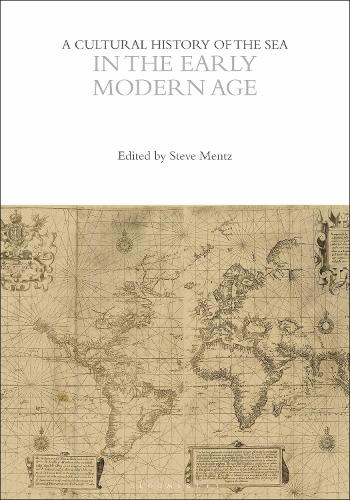
A Cultural History of the Sea in the Early Modern Age
(Paperback)
Publishing Details
A Cultural History of the Sea in the Early Modern Age
By (Author) Dr Steve Mentz
Bloomsbury Publishing PLC
Bloomsbury Academic
17th October 2024
United Kingdom
Classifications
Tertiary Education
Non Fiction
Social and cultural history
910.45
Physical Properties
Paperback
280
Width 168mm, Height 242mm, Spine 16mm
520g
Description
For the first time during the Early Modern period, ships regularly traveled between and among all of basins that comprise the World Ocean. During this period European mariners ventured into new waters, where they encountered new trading partners, new environments, and new opportunities. In the Caribbean and Atlantic coast of the Americas, European mariners sought everything from pearls to gold to codfish, and in pursuing these resources they fractured Indigenous communities. Entering into the ancient monsoon routes of the Indian Ocean brought European ships in touch with the powerful states and maritime cultures of East Africa and Asia. Converging on the vast Pacific basin both from the Americas and from Asia brought these mariners into contact with ancient cultures, dangerous passages, and newly global trade routes. During this period of globalization and cultural encounters, the ocean provided a means of transportation, a site of environmental hostility, and a poetic metaphor for both connection and alienation. In material and cultural ways, the global sea-routes traveled during this period laid down structures of global exchange and conflict that the world still follows today
Author Bio
Steve Mentz is Professor of English at St Johns University, USA. He is the author of three books, including Shipwreck Modernity: Ecologies of Globalization, 1550 1719 (2015), and the editor of four books. His maritime research has been supported by the Folger Shakespeare Library, the John Carter Brown Library, Mystic Seaport, the National Endowment for the Humanities, and the National Maritime Museum in London.
